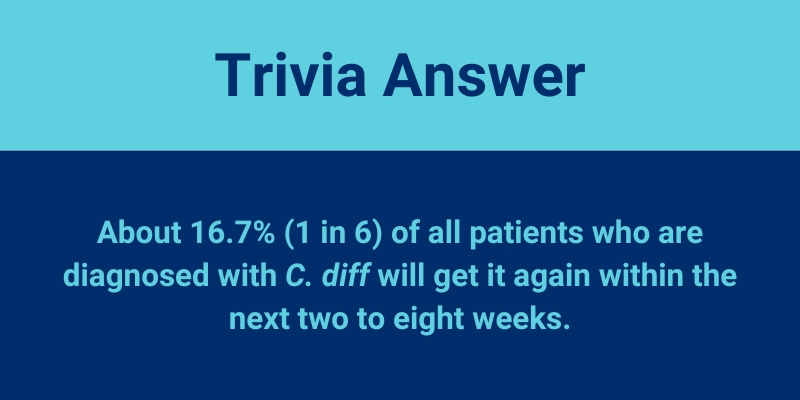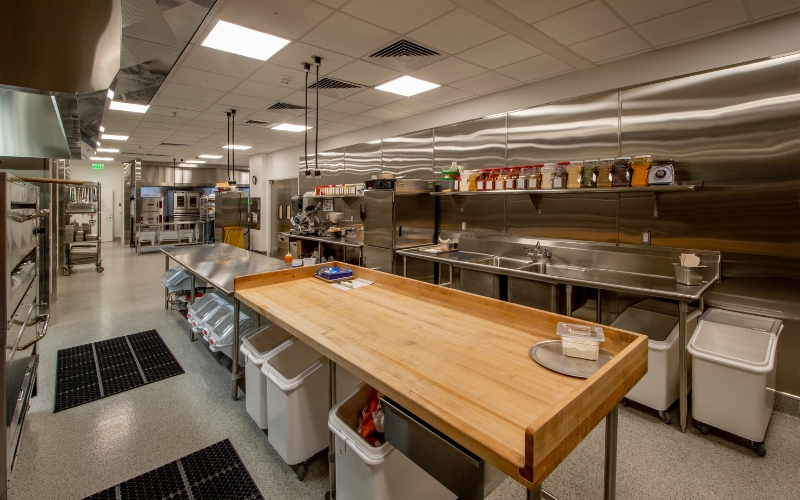November is C. diff Awareness Month, which focuses on raising awareness about Clostridioides difficile (C. diff), a persistent and harmful bacteria. This observance aims to educate the public and healthcare workers on preventing and controlling C. diff infections.
What is C. diff?
C. diff is a bacterium that causes gastrointestinal distress, from mild diarrhea to life-threatening colon inflammation. It spreads mainly through contact with contaminated surfaces. Each year, infections affect nearly half a million people in the United States, causing over 29,000 deaths within a month of diagnosis. Older adults and people with weakened immune systems, especially in healthcare facilities, are at most risk.
Overuse of antibiotics is a major factor in the bacterial spread. Antibiotics disrupt the gut’s healthy bacteria, allowing C. diff to flourish. Because it resists antibiotics, it can be difficult to treat and prone to recurrence.
Why Raising Awareness Matters
Increasing awareness is critical for many reasons. First, education helps patients and caregivers recognize symptoms, such as severe diarrhea and abdominal pain. Early recognition means prompt treatment, which can improve outcomes.
Despite its risks, public knowledge of C. diff remains low outside healthcare settings. Raising awareness can help discharged patients avoid spreading it unintentionally. When the public understands this, they’re better equipped to seek medical help and practice preventive measures, reducing the overall impact of the infection.
Prevention Strategies in Healthcare Settings
Preventing C. diff in healthcare settings requires a strict focus on limiting exposure and reducing transmission risks. The CDC recommends key measures for healthcare facilities to prevent outbreaks.
- Hand Hygiene: Proper hand-washing with soap and water is essential, as alcohol-based sanitizers do not kill spores.
- Thorough Cleaning: C. diff spores survive on surfaces for long periods, so effective cleaning agents are critical. EPA-approved disinfectants help remove spores from high-touch surfaces, patient rooms, and shared areas.
- Antibiotic Stewardship: Reducing unnecessary antibiotic use is crucial. Limiting antibiotics lowers patients’ risks of infections and supports a healthier gut microbiome.
- Isolation: Isolating infected patients minimizes exposure risk, keeping other patients safer.
Together, these measures significantly reduce infection risk. However, some healthcare facilities are also exploring innovative solutions to boost their prevention efforts.
Environmental Control Strategies: Expanding Prevention Measures
Because C. diff spores are so resilient, healthcare facilities increasingly consider advanced environmental controls to fight contamination. Environmental control strategies reduce the microbial load in indoor spaces, creating an unfavorable environment for C. diff to survive.
One of those methods revolves around continuous air and surface treatments, which complement traditional cleaning. That regular cleaning is essential and cannot be replaced, but adding air purification and decontamination technologies can reduce the microbial presence. This creates a more sanitary environment to lessen the risk of all infectious spread.
Synexis and Continuous Microbial Control
Synexis is an innovator in microbial reduction technology, specifically with our Dry Hydrogen Peroxide (DHP®) technology. DHP offers a proactive approach to reducing microbial presence in indoor spaces.
It works continuously, helping to reduce microbial populations on surfaces and in the air. We can’t emphasize enough that it does not replace traditional cleaning, but DHP does offer a consistent, supplemental layer of protection. Healthcare settings benefit from constant microbial reduction, which may limit cross-contamination risks.
This technology can support existing cleaning protocols, especially in shared spaces where C. diff transmission is a concern. It is proven effective against C. diff as well, with a 91 percent reduction on surfaces during the first 24 hours of exposure with testing achieved in a simulated hospital suite.

C. diff Awareness Month Moves Us to a Safer Future
C. diff Awareness Month reminds us of the importance of education, vigilance, and innovation in infection control. Reducing C. diff infections requires strict cleaning practices, hygiene protocols, and the adoption of new technologies to create safer environments.
As we understand more about preventing infections, we must utilize technology like DHP to protect vulnerable populations. Supporting healthcare efforts with these proactive solutions may help create cleaner and safer spaces for everyone.
To speak with an IAQ expert from Synexis, fill out this form and we’ll be in touch as soon as possible.
And to learn more about Synexis, click here.








